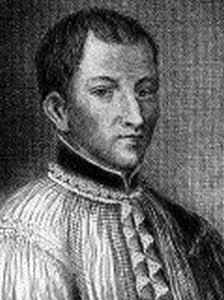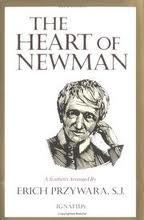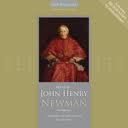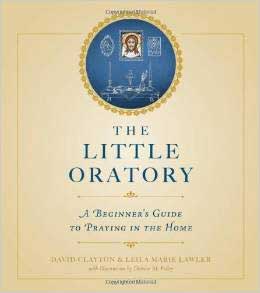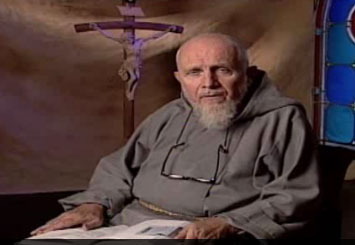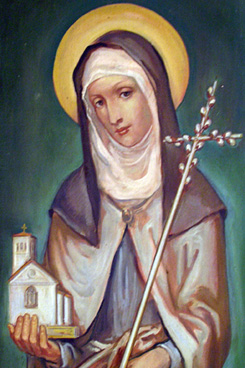The Novena for Holy Souls in Purgatory, Day 1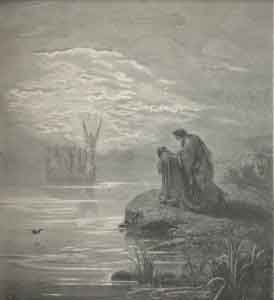
composed by by St. Alphonsus of Liguori
[powerpress]
Jesus, my Saviour, I have so often deserved to be cast into hell. how great would be my suffering if I were now cast away and obliged to think that I myself had caused my damnation. I thank Thee for the patience with which Thou hast endured me. My God, I love Thee above all things and I am heartily sorry for having offended Thee because Thou art infinite goodness. I will rather die than offend Thee again. Grant me the grace of perseverance. Have pity on me and at the same time on those blessed souls suffering in Purgatory. Mary, Mother of God, come to their assistance with thy powerful intercession.
Say the following prayers: 1 Our Father… 1 Hail Mary… The Prayer to Our Suffering Saviour for the Holy Souls in Purgatory found below
Visit the Discerning Hearts “Holy Souls†page for the complete novena and text of the prayers
Tags: catholic, catholic podcast, catholic prayer, cathollc spirituality, hell, holy souls in purgatory, Jesus, mp3, poor souls, prayers, purgatory, st alphonsus, suffering
This entry was posted on Friday, October 24th, 2014 at 1:03 am
You can follow any responses to this entry through the RSS 2.0 feed.
An Act of Hope and Confidence in God
[powerpress]
(thanks to Matt Willkom for sharing his vocal gifts on this prayer)
My God, I believe most firmly that Thou watchest over all who hope in Thee, and that we can want for nothing when we rely upon Thee in all things; therefore I am resolved for the future to have no anxieties, and to cast all my cares upon Thee.
People may deprive me of worldly goods and of honors; sickness may take from me my strength and the means of serving Thee; I may even lose Thy grace by sin; but my trust shall never leave me. I will preserve it to the last moment of my life, and the powers of hell shall seek in vain to wrestle it from me.
Let others seek happiness in their wealth, in their talents; let them trust to the purity of their lives, the severity of their mortifications, to the number of their good works, the fervor of their prayers; as for me, O my God, in my very confidence lies all my hope. “For Thou, O Lord, singularly has settled me in hope.” This confidence can never be in vain. “No one has hoped in the Lord and has been confounded.”
I am assured, therefore, of my eternal happiness, for I firmly hope for it, and all my hope is in Thee. “In Thee, O Lord, I have hoped; let me never be confounded.”
I know, alas! I know but too well that I am frail and changable; I know the power of temptation against the strongest virtue. I have seen stars fall from heaven, and pillars of firmament totter; but these things alarm me not. While I hope in Thee I am sheltered from all misfortune, and I am sure that my trust shall endure, for I rely upon Thee to sustain this unfailing hope.
Finally, I know that my confidence cannot exceed Thy bounty, and that I shall never receive less than I have hoped for from Thee. Therefore I hope that Thou wilt sustain me against my evil inclinations; that Thou wilt protect me against the most furious assults of the evil one, and that Thou wilt cause my weakness to triumph over my most powerful enemies. I hope that Thou wilt never cease to love me, and that I shall love Thee unceasingly. “In Thee, O Lord, have I hoped; let me never be confounded.”
From the writings of St. Claude on Prayer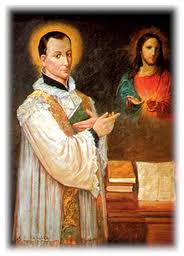
“Since by the mercy of God I feel myself somewhat drawn to prayer, I have asked of God, with a large heart, through the intercession of the Blessed Virgin, that He would give me the grace to love this holy exercise more and more, unto the hour of my death.
It is the one means for our purification, the one way to union with God, the one channel by which God may unite Himself with us, that He may do anything with us for His glory. To obtain the virtues of an apostle we must pray; to make them of use to our neighbour we must pray; to prevent our losing them while we use them in His service we must pray.
The cousel, or rather the commandment: Pray always, seems to me extremely sweet and by no means impossible. It secures the practice of the presence of God; I wish, with the help of Our Lord, to endeavour to follow it. We are always in need of God, then we need to pray always; the more we pray the more we please Him, and the more we receive.
I do not ask for those delights in prayer which God gives to who He will; I am not worthy of them, I have not strength enough to bear them. Extraordinary graces are not good for me; to give them to me would be to build on sand, it would only be pouring precious liquor into a leaking hogshead which can hold nothing. I ask of God only a solid, simple manner of prayer, which may give Him glory and will not puff me up; dryness and desolation, accompanied with His grace, are very good for me, so it seems. Then I make acts of the best kind, and with satisfaction; then I make efforts against my evil disposition, I try to be faithful to God, etc….
Above all things I am resigned to be sanctified by the way that God shall please, by the absence of all sensible delight, if He wishes it so to be, by interior trials, by continual combat with my passions.”
Tags: catholic, catholic podcast, catholic prayer, cathollc spirituality, confidence in god, desolation, evil, practice of the presence of god, prayer, union with god, virtues
This entry was posted on Monday, October 20th, 2014 at 7:39 pm
You can follow any responses to this entry through the RSS 2.0 feed.
We will be praying with and learning from Blessed John Henry Newman for many, many years to come.  Joseph Pearce has been a wonderful student, as well as instructor of (or should I say “illuminator of”) the life and work of  this great man, John Henry Newman, and who is now a bona fide memeber of the Cloud of Witnesses. It’s ALWAYS a joy to talk with Joseph, but it was really fantastic to speak with him in particular about Blessed John Henry Newman and the new books released by Ignatius Press to help us grow in our awareness of him!
Joseph Pearce has been a wonderful student, as well as instructor of (or should I say “illuminator of”) the life and work of  this great man, John Henry Newman, and who is now a bona fide memeber of the Cloud of Witnesses. It’s ALWAYS a joy to talk with Joseph, but it was really fantastic to speak with him in particular about Blessed John Henry Newman and the new books released by Ignatius Press to help us grow in our awareness of him!
[powerpress]
Tags: Blessed John Henry Newman, catholic, catholic podcast, catholic prayer, cathollc spirituality, ignatius press, john henry newman, joseph pearce, work
This entry was posted on Thursday, October 9th, 2014 at 10:49 am
You can follow any responses to this entry through the RSS 2.0 feed.
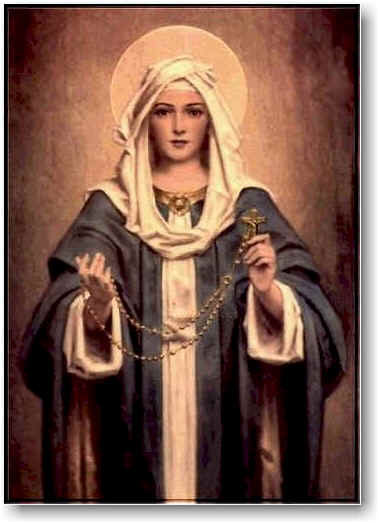 Outside of the Sacramental prayers of the Church, for me, there is no other prayer more important then the prayerful recitation of the Holy Rosary of the Blessed Virgin Mary.
Outside of the Sacramental prayers of the Church, for me, there is no other prayer more important then the prayerful recitation of the Holy Rosary of the Blessed Virgin Mary.
Our late great Holy Father, St. John Paul II put it beautifully in His Apostolic Letter On the Rosary of the Virgin Mary:
“A path of contemplation”
“But the most important reason for strongly encouraging the practice of the Rosary is that it represents a most effective means of fostering among the faithful that commitment to the contemplation of the Christian mystery which I have proposed in the Apostolic Letter Novo Millennio Ineunte as a genuine “training in holinessâ€: “What is needed is a Christian life distinguished above all in the heart of The Rosary belongs among the finest and most praiseworthy traditions of Christian contemplation. Developed in the West, it is a typically meditative prayer, corresponding in some way to the “prayer of the heart†or “Jesus prayer†which took root in the soil of the Christian East.”- His Apostolic Letter On the Rosary of the Virgin Mary
Please take some time to check out the Discerning Hearts “Holy Rosary Page”
Audio mp3 download/podcasts of the Holy Rosary
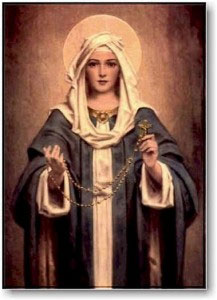 Joyful Mysteries
Joyful Mysteries
[powerpress]
Sorrowful Mysteries
[powerpress url=”http://www.old.discerninghearts.com/Devotionals/Rosary-Sorrowful-Mysteries.mp3″]Download (right click & choose “Save Link As”)
Luminous Mysteries
[powerpress url=”http://www.old.discerninghearts.com/Devotionals/Rosary-Luminous-Mysteries.mp3″]Download (right click & choose “Save Link As”)
Glorious Mysteries
[powerpress url=”http://www.old.discerninghearts.com/Devotionals/Rosary-Glorious-Mysteries.mp3″]Download (right click & choose “Save Link As”)
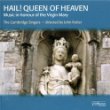
meditative music provided by
Â
Tags: Apostolic Letter, Apostolic Letter Novo Millennio Ineunte, catholic, catholic podcast, catholic prayer, cathollc spirituality, the Blessed Virgin Mary, The Virgin Mary, virgin mary
This entry was posted on Wednesday, October 1st, 2014 at 12:21 am
You can follow any responses to this entry through the RSS 2.0 feed.
USCCA44 Â Chapter 35-Â God Calls Us To Pray – The Foundations of Prayer pt 1
[powerpress]
Archbishop Lucas offers insights on the US Catholic Catechism for Adults Chapter 35:
Descriptions of prayer are abundant throughout Christian history. “True prayer,†wrote St. Augustine, “is nothing but love.†Prayer should arise from the heart. “Prayer,†said St. John Vianney, “is the inner bath of love into which the soul plunges itself.†“Everyone of us needs half an hour of prayer each day,†remarked St. Francis de Sales, “except when we are busy—then we need an hour.†Definitions of prayer are important, but insufficient. There is a huge difference between knowing about prayer and praying. On this issue, the Rule of St. Benedict is clear: “If a man wants to pray, let him go and pray.â€
St. John Damascene gave a classic definition of prayer: “Prayer is the raising of one’s mind and heart to God or the requesting of good things from God†(CCC, no. 2559, citing St. John Damascene, De Fide Orth. 3, 24).
The Catechism clearly defines prayer as a “vital and personal relationship with the living and true God†(CCC, no. 2558). Prayer is Christian “insofar as it is communion with Christ†(CCC, no. 2565), and a “covenant relationship between God and man in Christ†(CCC, no. 2564).
United States Conference of Catholic Bishops (USCCB) (2012-04-02). United States Catholic Catechism for Adults (Kindle Locations 6658-6667). United States Conference of Catholic Bishops (USCCB). Kindle Edition.
The Most Reverend George J. Lucas leads the Archdiocese of Omaha.Â
For other episodes in the visit our Archbishop George Lucas page
This programs is based on:
More information can be found here.
We wish to thank the USCCB for the permissions granted for use of  relevant material used in this series.
Tags: catholic, catholic podcast, catholic prayer, cathollc spirituality
This entry was posted on Thursday, September 25th, 2014 at 2:44 pm
You can follow any responses to this entry through the RSS 2.0 feed.
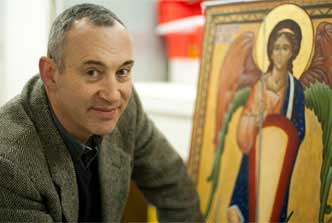 “The Little Oratory: A Beginner’s Guide to Praying in the Home” by David Clayton and Leila M. Lawler is absolutely wonderful.  More than just a “prayer-how-to”, this book is about the beauty of God and embracing the relationship in all areas of our lives.  Clayton and Lawler help us to reverence the sacred found in our homes, in the rhythm of the day, the blessings we have been given, and the gift of the present moment.  This is for every home, whether one filled with children or a sanctuary for the single life, this is a must have for those who wish to be surrounded in prayer.
“The Little Oratory: A Beginner’s Guide to Praying in the Home” by David Clayton and Leila M. Lawler is absolutely wonderful.  More than just a “prayer-how-to”, this book is about the beauty of God and embracing the relationship in all areas of our lives.  Clayton and Lawler help us to reverence the sacred found in our homes, in the rhythm of the day, the blessings we have been given, and the gift of the present moment.  This is for every home, whether one filled with children or a sanctuary for the single life, this is a must have for those who wish to be surrounded in prayer.
[powerpress]
You can find the book here
“This is one of the most beautiful books I have ever seen. How I wish I had it when I first became a Catholic, not just for myself, as a husband and father, but for my family, too. If one book has the potential to transform the Catholic family (and society), this is it.” – Scott Hahn
“This book is a rare treasure.” – Thomas Howard
“Wonderful, inspiring, and deeply practical.” – Joseph Pearce, Editor of The Saint Austin Review
“A great blessing to Catholic families.” – Stratford Caldecott, an editor of Magnificat UK
Tags: catholic, catholic podcast, catholic prayer, cathollc spirituality
This entry was posted on Tuesday, September 23rd, 2014 at 12:54 pm
You can follow any responses to this entry through the RSS 2.0 feed.
St. Hildegard and   “The Creation and The Fall” and the Battle of Prayer – The Mystery of Faith in the Wisdom of the Saints
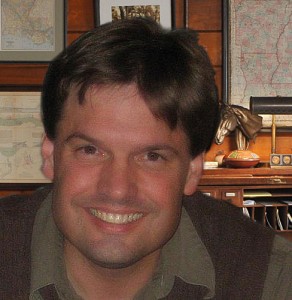
[powerpress]
Dr. Lilles’ teaches that prayer is a battle between the Truth and the lie, and how our understanding affects how we are going to live. Â We need to be aware that there is a liar who is trying to drag us down. We need to understand creation and fall, which is brought forward by a particular vision given to, doctor of the Church, St. Hildegard of Bingen. Â She helps us appreciate the “stench” of evil. Evil is the absence of something good in us, it is darkness. Â Christ is the Light which illuminates our hearts and the world.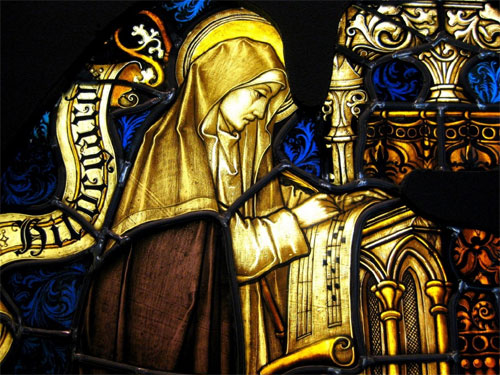
Dr.Anthony Lilles is a Catholic husband and father of three teaching Spiritual Theology at St. John Vianney Theological Seminary. He  teaches spiritual theology and spiritual direction to transitional deacons, and the spiritual classics to the men who enter the Spirituality Year, a year of prayer in preparation for seminary formation.  He is the author of the “Beginning to Pray”  Catholic blog spot.
For other episodes in the series visit the Discerning Hearts page for Dr. Anthony Lilles
Tags: Anthony Lilles, catholic, catholic podcast, catholic prayer, cathollc spirituality, Discerning Hearts, father, prayer
This entry was posted on Wednesday, September 17th, 2014 at 9:07 am
You can follow any responses to this entry through the RSS 2.0 feed.
By tradition, the Catholic Church dedicates each month of the year to a certain devotion.
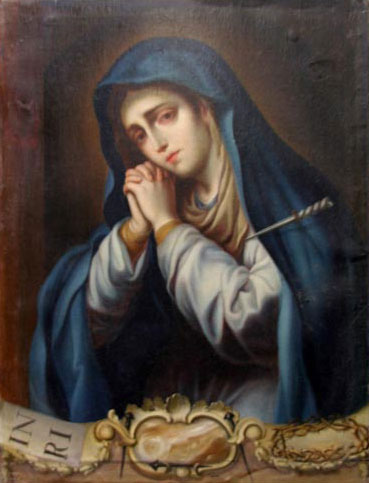 September, the month dedicated to
September, the month dedicated to
Our Lady of Sorrows.
The Memorial of Our Lady of Sorrows takes place on September 15, the day after the Feast of the Triumph of the Cross. We remember the suffering of Mary as she stood at the foot of the Cross and witnessed the torture and death of her Son.
Here is a mediation on the Seven Sorrows of Our Lady that you may wish to join in daily in honor of the Blessed Mother this month…featuring Fr. Mark Cyza and Kris McGregor
[powerpress]
We also are reminded of Simeon’s words to Mary (Luke 2:34-35) at the Presentation of the Lord—that a sword would pierce her soul.
The following prayers can be incorporated into our daily prayers during the Month of Our Lady of Sorrows.
To the Mother of Sorrows
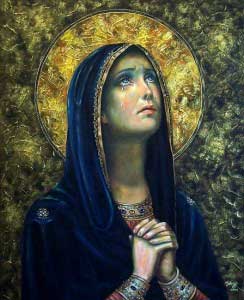 Most holy Virgin and Mother, whose soul was pierced by a sword of sorrow in the Passion of thy divine Son, and who in His glorious Resurrection wast filled with never-ending joy at His triumph; obtain for us who call upon thee, so to be partakers in the adversities of Holy Church and the sorrows of the Sovereign Pontiff, as to be found worthy to rejoice with them in the consolation for which we pray, in the charity and peace of the same Christ our Lord. Amen.
Most holy Virgin and Mother, whose soul was pierced by a sword of sorrow in the Passion of thy divine Son, and who in His glorious Resurrection wast filled with never-ending joy at His triumph; obtain for us who call upon thee, so to be partakers in the adversities of Holy Church and the sorrows of the Sovereign Pontiff, as to be found worthy to rejoice with them in the consolation for which we pray, in the charity and peace of the same Christ our Lord. Amen.
To Our Lady of Sorrows
O most holy Virgin, Mother of our Lord Jesus Christ: by the overwhelming grief you experienced when you witnessed the martyrdom, the crucifixion, and death of your divine Son, look upon me with eyes of compassion, and awaken in my heart a tender commiseration for those sufferings, as well as a sincere detestation of my sins, in order that being disengaged from all undue affection for the passing joys of this earth, I may sigh after the eternal Jerusalem, and that henceforward all my thoughts and all my actions may be directed towards this one most desirable object. Honor, glory, and love to our divine Lord Jesus, and to the holy and immaculate Mother of God. Amen.
To the Queen of Martyrs
Mary, most holy Virgin and Queen of Martyrs, accept the sincere homage of my filial affection. Into thy heart, pierced by so many swords, do thou welcome my poor soul. Receive it as the companion of thy sorrows at the foot of the Cross, on which Jesus died for the redemption of the world. With thee, O sorrowful Virgin, I will gladly suffer all the trials, contradictions, and infirmities which it shall please our Lord to send me. I offer them all to thee in memory of thy sorrows, so that every thought of my mind, and every beat of my heart may be an act of compassion and of love for thee. And do thou, sweet Mother, have pity on me, reconcile me to thy divine Son Jesus, keep me in His grace, and assist me in my last agony, so that I may be able to meet thee in heaven and sing thy glories. Amen.
Tags: catholic, catholic podcast, catholic prayer, cathollc spirituality, daily prayers, death, devotion, holy virgin, month of september, mother of sorrows, our lady of sorrows, prayers, prayers to our lady of sorrows, seven sorrows of our lady, seven sorrows of the blessed virgin mary, suffering
This entry was posted on Monday, September 1st, 2014 at 12:01 am
You can follow any responses to this entry through the RSS 2.0 feed.
The Prayer of the Hebrew Scriptures – .  Fr. Groeschel discusses the experience of Abraham, Moses, the Maccabees.  He shares the beauty of the Psalms.  He speaks of the importance of the Christian enter the mystery of prayer found in the Hebrew Scriptures  (Old Testament of the Bible).
This program features Fr. Benedict Groeschel teaching and talking about the Catechism and the Bible with an emphasis on prayer. His discussion of prayer is based on the premise that an essential condition of prayer is devotion- the belief that God is listening and cares for us. In “Prayer in the Catechism”, Fr. Groeschel discusses the various kinds of prayer, including a special emphasis on using scripture when praying. The catechism contains basic Christian teaching formatted for learning and understanding. More information about the Catechism of the Catholic Church may be found on the United States Conference of Catholic Bishops website.
Benedict Joseph Groeschel, CFR is a Catholic priest, retreat master, author, psychologist, activist and has hosted several television programs. He was the director of the Office for Spiritual Development for the Catholic Archdiocese of New York as well as associate director of Trinity Retreat and the executive director of The St. Francis House. He was professor of pastoral psychology at St. Joseph’s Seminary in New York and an adjunct professor at the Institute for Psychological Sciences in Arlington, Virginia.
This program is a production of Pauline Media and the Daughters of St. Paul copyright 1997. Â For more from Pauline Media visit here
Tags: Benedict Groeschel, catholic, catholic podcast, catholic prayer, cathollc spirituality, Hebrew Scriptures
This entry was posted on Friday, August 22nd, 2014 at 7:45 am
You can follow any responses to this entry through the RSS 2.0 feed.
The Prayer from Our Humanity – The universal prayer of human beings which flows from the natural law. Â Fr. Groeschel discusses the prayer of cultures from ancient times to the present day. Â He teaches the perspective of paganism and other religions, and what is the nature of true Christian prayer.
This program features Fr. Benedict Groeschel teaching and talking about the Catechism and the Bible with an emphasis on prayer. His discussion of prayer is based on the premise that an essential condition of prayer is devotion- the belief that God is listening and cares for us. In “Prayer in the Catechism”, Fr. Groeschel discusses the various kinds of prayer, including a special emphasis on using scripture when praying. The catechism contains basic Christian teaching formatted for learning and understanding. More information about the Catechism of the Catholic Church may be found on the United States Conference of Catholic Bishops website.
Benedict Joseph Groeschel, CFR is a Catholic priest, retreat master, author, psychologist, activist and has hosted several television programs. He was the director of the Office for Spiritual Development for the Catholic Archdiocese of New York as well as associate director of Trinity Retreat and the executive director of The St. Francis House. He was professor of pastoral psychology at St. Joseph’s Seminary in New York and an adjunct professor at the Institute for Psychological Sciences in Arlington, Virginia.
This program is a production of Pauline Media and the Daughters of St. Paul copyright 1997. Â For more from Pauline Media visit here
Tags: Benedict Groeschel, catholic, catholic podcast, catholic prayer, cathollc spirituality, christian prayer, Groeschel, Joseph Groeschel
This entry was posted on Friday, August 15th, 2014 at 6:42 am
You can follow any responses to this entry through the RSS 2.0 feed.
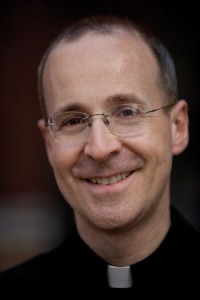
Join Bruce and I, as we discuss the life of both St. Maximilian Kolbe and St. Teresa Benedicta of the Cross with Fr. James Martin, S.J.
[powerpress]
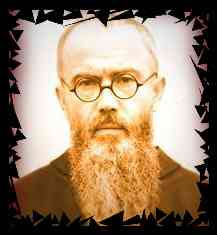 Just look at his eyes…every picture of St. Maximillan Kolbe has those fiery prophetic eyes.
Just look at his eyes…every picture of St. Maximillan Kolbe has those fiery prophetic eyes.
Fueled with the fires of grace from his great love for and devotion to the Blessed Virgin Mary, St. Maximilian was a missionary extraordinaire. A publisher who was a leader in the yet to be defined “New Evangelization”.
They say the blood of the martyrs becomes the seed for the Church. In the case of St. Maximilian, Catholic publishing and broadcasting…all media, would be enriched by his intercession and example. His courage in speaking out against the horrors of the Nazi regime is what placed him in the death camp; it would be his love for Christ and his neighbor that would lead him to give his life for another. And that is what earned him the martyr’s crown.
“In order to discourage escapes, Auschwitz had a rule that if a man escaped, ten men would be killed in retaliation. In July 1941 a man from Kolbe’s bunker escaped. The dreadful irony of the story is that the escaped prisoner was later found drowned in a camp latrine, so the terrible reprisals had been exercised without cause. But the remaining men of the bunker were led out.
‘The fugitive has not been found!’ the commandant Karl Fritsch screamed. ‘You will all pay for this. Ten of you will be locked in the starvation bunker without food or water until they die.’ The prisoners trembled in terror. A few days in this bunker without food and water, and a man’s intestines dried up and his brain turned to fire.
The ten were selected, including Franciszek Gajowniczek, imprisoned for helping the Polish Resistance. He couldn’t help a cry of anguish. ‘My poor wife!’ he sobbed. ‘My poor children! What will they do?’ When he uttered this cry of dismay, Maximilian stepped silently forward, took off his cap, and stood before the commandant and said, ‘I am a Catholic priest. Let me take his place. I am old. He has a wife and children.’
Astounded, the icy-faced Nazi commandant asked, ‘What does this Polish pig want?’
Father Kolbe pointed with his hand to the condemned Franciszek Gajowniczek and repeated‘I am a Catholic priest from Poland; I would like to take his place, because he has a wife and children.’
Observers believed in horror that the commandant would be angered and would refuse the request, or would order the death of both men. The commandant remained silent for a moment. What his thoughts were on being confronted by this brave priest we have no idea. Amazingly, however, he acceded to the request. Apparantly the Nazis had more use for a young worker than for an old one, and was happy to make the exchange. Franciszek Gajowniczek was returned to the ranks, and the priest took his place.
Gajowniczek later recalled:
 I could only thank him with my eyes. I was stunned and could hardly grasp what was going on. The immensity of it: I, the condemned, am to live and someone else willingly and voluntarily offers his life for me – a stranger. Is this some dream?
 I was put back into my place without having had time to say anything to Maximilian Kolbe. I was saved. And I owe to him the fact that I could tell you all this. The news quickly spread all round the camp. It was the first and the last time
For that such an incident happened in the whole history of Auschwitz. A long time I felt remorse when I thought of Maximilian. By allowing myself to be saved, I had signed his death warrant. But now, on reflection, I understood that a man like him could not have done otherwise. Perhaps he thought that as a priest his place was beside the condemned men to help them keep hope. In fact he was with them to the last.’‘
A personal testimony about the way Maximilian Kolbe met death is given by Bruno Borgowiec, one of the few Poles who were assigned to render service to the starvation bunker. He told it to his parish priest before he died in 1947:
 ‘The ten condemned to death went through terrible days. From the underground cell in which they were shut up there continually arose the echo of prayers and canticles. The man in-charge of emptying the buckets of urine found them always empty. Thirst drove the prisoners to drink the contents. Since they had grown very weak, prayers were now only whispered. At every inspection, when almost all the others were now lying on the floor, Father Kolbe was seen kneeling or standing in the centre as he looked cheerfully in the face of the SS men.
Father Kolbe never asked for anything and did not complain, rather he encouraged the others, saying that the fugitive might be found and then they would all be freed. One of the SS guards remarked: this priest is really a great man. We have never seen anyone like him ..
Two weeks passed in this way. Meanwhile one after another they died, until only Father Kolbe was left. This the authorities felt was too long. The cell was needed for new victims. So one day they brought in the head of the sick-quarters, a German named Bock, who gave Father Kolbe an injection of carbolic acid in the vein of his left arm. Father Kolbe, with a prayer on his lips, himself gave his arm to the executioner. Unable to watch this I left under the pretext of work to be done. Immediately after the SS men had left I returned to the cell, where I found Father Kolbe leaning in a sitting position against the back wall with his eyes open and his head drooping sideways. His face was calm and radiant ..’
 So it was that Father Maximilian Kolbe was executed on 14 August, 1941 at the age of forty-seven years, a martyr of charity. The death certificate, as always made out with German precision, indicated the hour of death 12.30.
Father Kolbe’s body was removed to the crematorium, and without dignity or ceremony was disposed of, like hundreds of thousands who had gone before him, and hundreds of thousands more who would follow.
The heroism of Father Kolbe went echoing throughAuschwitz. In that desert of hatred he had sown love. A survivor Jozef Stemler later recalled: ‘In the midst of a brutalization of thought, feeling and words such as had never before been known, man indeed became a ravening wolf in his relations with other men. And into this state of affairs came the heroic self-sacrifice of Father Kolbe.’ Another survivor Jerzy Bielecki declared that Father Kolbe’s death was ‘a shock filled with hope, bringing new life and strength … It was like a powerful shaft of light in the darkness of the camp.’
The cell where Father Kolbe died is now a shrine. Maximilian Kolbe was beatified as Confessor by Paul VI in 1970, and canonized as Martyr by Pope John Paul II in 1981.†– from St. Maximillian Kolbe, saint of Auschwitz
Tags: auschwitz, blessed virgin mary, catholic, catholic podcast, catholic prayer, catholic priest, cathollc spirituality, children, edith stein, father kolbe, fr. james martin, holacaust, James Martin, martyrs, maximillan kolbe, Maximillian Kolbe, nazi death camp, st maximilian
This entry was posted on Thursday, August 14th, 2014 at 6:01 pm
You can follow any responses to this entry through the RSS 2.0 feed.
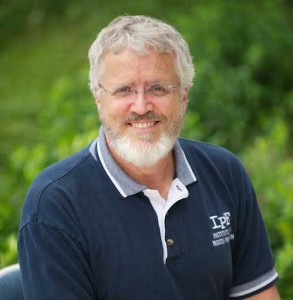 Episode 1 Salvation Begins Now: Last Things First – What are the “Last Things”? Â Death, Purgatory, Heaven, Hell, the Last Judgement, Eternal Life will be explored in this series. Â In this episode we begin the discussion on What is death? Â What is resurrection? What is the connection between the body and the soul?
Episode 1 Salvation Begins Now: Last Things First – What are the “Last Things”? Â Death, Purgatory, Heaven, Hell, the Last Judgement, Eternal Life will be explored in this series. Â In this episode we begin the discussion on What is death? Â What is resurrection? What is the connection between the body and the soul?
[powerpress]
From the Catechism of the Catholic Church:
994Â But there is more. Jesus links faith in the resurrection to his own person: “I am the Resurrection and the life.”544Â It is Jesus himself who on the last day will raise up those who have believed in him, who have eaten his body and drunk his blood.545Â Already now in this present life he gives a sign and pledge of this by restoring some of the dead to life,546Â announcing thereby his own Resurrection, though it was to be of another order. He speaks of this unique event as the “sign of Jonah,”547Â the sign of the temple: he announces that he will be put to death but rise thereafter on the third day.548
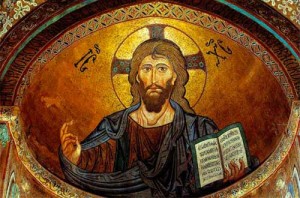 Deacon James Keating, PhD, the director of Theological Formation for the Institute for Priestly Formation, located at Creighton University, in Omaha.
Deacon James Keating, PhD, the director of Theological Formation for the Institute for Priestly Formation, located at Creighton University, in Omaha.
 For more information on the “Institute of Priestly Formation” and for other material available by Deacon Keating, just click here
For more information on the “Institute of Priestly Formation” and for other material available by Deacon Keating, just click here  Don’t forget to pickup a copy of “Communion with Christ” , it is one of the best audio sets on prayer…ever!
Don’t forget to pickup a copy of “Communion with Christ” , it is one of the best audio sets on prayer…ever!
Check out Deacon Keating’s “Discerning Heart” page
Tags: catholic, catholic podcast, catholic prayer, cathollc spirituality, creighton university, death, eternal life, heaven, hell, institute for priestly formation, last things, purgatory
This entry was posted on Tuesday, August 12th, 2014 at 10:48 am
You can follow any responses to this entry through the RSS 2.0 feed.
Vatican City, Sep 15, 2010 Pope Benedict’s General Audience, from Vatican.va
Saint Clare of Assisi
Dear Brothers and Sisters,
One of the best loved Saints is without a doubt St Clare of Assisi who lived in the 13th century and was a contemporary of St Francis. Her testimony shows us how indebted the Church is to courageous women, full of faith like her, who can give a crucial impetus to the Church’s renewal.
So who was Clare of Assisi? To answer this question we possess reliable sources: not only the ancient biographies, such as that of Tommaso da Celano, but also the Proceedings of the cause of her canonization that the Pope promoted only a few month after Clare’s death and that contain the depositions of those who had lived a long time with her.
Born in 1193, Clare belonged to a wealthy, aristocratic family. She renounced her noble status and wealth to live in humility and poverty, adopting the lifestyle that Francis of Assisi recommended. Although her parents were planning a marriage for her with some important figure, as was then the custom, Clare, with a daring act inspired by her deep desire to follow Christ and her admiration for Francis, at the age of 18 left her family home and, in the company of a friend, Bona di Guelfuccio, made her way in secret to the Friars Minor at the little Church of the Portiuncula. It was the evening of Palm Sunday in 1211. In the general commotion, a highly symbolic act took place: while his companions lit torches, Francis cut off Clare’s hair and she put on a rough penitential habit. From that moment she had become the virgin bride of Christ, humble and poor, and she consecrated herself totally to him. Like Clare and her companions, down through history innumerable women have been fascinated by love for Christ which, with the beauty of his Divine Person, fills their hearts. And the entire Church, through the mystical nuptial vocation of consecrated virgins, appears what she will be for ever: the pure and beautiful Bride of Christ.
In one of the four letters that Clare sent to St Agnes of Prague the daughter of the King of Bohemia, who wished to follow in Christ’s footsteps, she speaks of Christ, her beloved Spouse, with nuptial words that may be surprising but are nevertheless moving: “When you have loved [him] you shall be chaste; when you have touched [him] you shall become purer; when you have accepted [him] you shall be a virgin. Whose power is stronger, whose generosity is more elevated, whose appearance more beautiful, whose love more tender, whose courtesy more gracious. In whose embrace you are already caught up; who has adorned your breast with precious stones… and placed on your head a golden crown as a sign [to all] of your holiness” (First Letter to Blessed Agnes of Prague: FF,2862).
Especially at the beginning of her religious experience, Francis of Assisi was not only a teacher to Clare whose teachings she was to follow but also a brotherly friend. The friendship between these two Saints is a very beautiful and important aspect.
Indeed, when two pure souls on fire with the same love for God meet, they find in their friendship with each other a powerful incentive to advance on the path of perfection. Friendship is one of the noblest and loftiest human sentiments which divine Grace purifies and transfigures.
Like St Francis and St Clare, other Saints too experienced profound friendship on the journey towards Christian perfection. Examples are St Francis de Sales and St Jane Frances de Chantal. And St Francis de Sales himself wrote: “It is a blessed thing to love on earth as we hope to love in Heaven, and to begin that friendship here which is to endure for ever there. I am not now speaking of simple charity, a love due to all mankind, but of that spiritual friendship which binds souls together, leading them to share devotions and spiritual interests, so as to have but one mind between them” (The Introduction to a Devout Life, III, 19).
After spending a period of several months at other monastic communities, resisting the pressure of her relatives who did not at first approve of her decision, Clare settled with her first companions at the Church of San Damiano where the Friars Minor had organized a small convent for them. She lived in this Monastery for more than 40 years, until her death in 1253. A first-hand description has come down to us of how these women lived in those years at the beginning of the Franciscan movement. It is the admiring account of Jacques de Vitry, a Flemish Bishop who came to Italy on a visit. He declared that he had encountered a large number of men and women of every social class who, having “left all things for Christ, fled the world. They called themselves Friars Minor and Sisters Minor [Lesser] and are held in high esteem by the Lord Pope and the Cardinals…. The women live together in various homes not far from the city. They receive nothing but live on the work of their own hands. And they are deeply troubled and pained at being honoured more than they would like to be by both clerics and lay people” (Letter of October 1216:Â FF, 2205, 2207).
Jacques de Vitry had perceptively noticed a characteristic trait of Franciscan spirituality about which Clare was deeply sensitive: the radicalism of poverty associated with total trust in Divine Providence. For this reason, she acted with great determination, obtaining from Pope Gregory IX or, probably, already from Pope Innocent III, the so-called Privilegium Paupertatis (cf. FF.,3279). On the basis of this privilege Clare and her companions at San Damiano could not possess any material property. This was a truly extraordinary exception in comparison with the canon law then in force but the ecclesiastical authorities of that time permitted it, appreciating the fruits of evangelical holiness that they recognized in the way of life of Clare and her sisters. This shows that even in the centuries of the Middle Ages the role of women was not secondary but on the contrary considerable. In this regard, it is useful to remember that Clare was the first woman in the Church’s history who composed a written Rule, submitted for the Pope’s approval, to ensure the preservation of Francis of Assisi’s charism in all the communities of women large numbers of which were already springing up in her time that wished to draw inspiration from the example of Francis and Clare.
In the Convent of San Damiano, Clare practised heroically the
virtues that should distinguish every Christian: humility, a spirit of piety and penitence and charity. Although she was the superior, she wanted to serve the sick sisters herself and joyfully subjected herself to the most menial tasks. In fact, charity overcomes all resistance and whoever loves, joyfully performs every sacrifice. Her faith in the Real Presence of Christ in the Eucharist was so great that twice a miracle happened. Simply by showing to them the Most Blessed Sacrament distanced the Saracen mercenaries, who were on the point of attacking the convent of San Damiano and pillaging the city of Assisi.
Such episodes, like other miracles whose memory lives on, prompted Pope Alexander IV to canonize her in 1255, only two years after her death, outlining her eulogy in the Bull on the Canonization of St Clare. In it we read: “How powerful was the illumination of this light and how strong the brightness of this source of light. Truly this light was kept hidden in the cloistered life; and outside them shone with gleaming rays; Clare in fact lay hidden, but her life was revealed to all. Clare was silent, but her fame was shouted out” (FF, 3284). And this is exactly how it was, dear friends: those who change the world for the better are holy, they transform it permanently, instilling in it the energies that only love inspired by the Gospel can elicit. The Saints are humanity’s great benefactors!
St Clare’s spirituality, the synthesis of the holiness she proposed is summed up in the fourth letter she wrote to St Agnes of Prague. St Clare used an image very widespread in the Middle Ages that dates back to Patristic times: the mirror. And she invited her friend in Prague to reflect herself in that mirror of the perfection of every virtue which is the Lord himself. She wrote: “Happy, indeed, is the one permitted to share in this sacred banquet so as to be joined with all the feelings of her heart (to Christ) whose beauty all the blessed hosts of the Heavens unceasingly admire, whose affection moves, whose contemplation invigorates, whose generosity fills, whose sweetness replenishes, whose remembrance pleasantly brings light, whose fragrance will revive the dead, and whose glorious vision will bless all the citizens of the heavenly Jerusalem, because the vision of him is thesplendour of everlasting glory, the radiance of everlasting light, and a mirror without tarnish. Look into this mirror every day, O Queen, spouse of Jesus Christ, and continually examine your face in it, so that in this way you may adorn yourself completely, inwardly and outwardly…. In this mirror shine blessed poverty, holy humility, and charity beyond words…” (Fourth Letter to Blessed Agnes of Prague, FF, 2901-2903).
Grateful to God who give us Saints who speak to our hearts and offer us an example of Christian life to imitate, I would like to end with the same words of Blessing that St Clare composed for her Sisters and which the Poor Clares, who play a precious role in the Church with their prayer and with their work, still preserve today with great devotion. These are words in which the full tenderness of her spiritual motherhood emerges: “I give you my blessing now while living, and after my death, in as far as I may: nay, even more than I may, I call down on you all the blessings that the Father of mercies has bestowed and continues to bestow on his spiritual sons and daughters both in Heaven and on earth, and with which a spiritual father and mother have blessed and will bless their spiritual sons and daughters. Amen” (FF, 2856).
Tags: catholic, catholic podcast, catholic prayer, cathollc spirituality, Clare of Assisi, pope benedict, pope benedict xvi, Saint Clare of Assisi, st clare of assisi, women of the middle ages
This entry was posted on Monday, August 11th, 2014 at 11:02 am
You can follow any responses to this entry through the RSS 2.0 feed.
Michael Novak is a shining witness of what occurs in the soul when the head makes the journey to the heart. 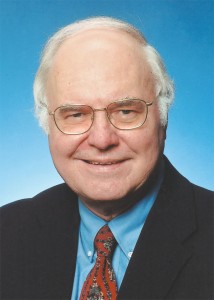  What a gift he is to all of us and what a profound sage of wisdom…when he so-gently speaks, I listen….we all should!  In “Living the Call: An Introduction to the Lay Vocation“, Michael, along with his co-author William E. Simon, Jr, establishes, in Part 1, of the book, the need for the lay vocation in the Church today.  They chronicle that need with a national and global perspective.  They also present how “living the call”  looks in the lives of nine committed  lay faithful working in parish life today.
 What a gift he is to all of us and what a profound sage of wisdom…when he so-gently speaks, I listen….we all should!  In “Living the Call: An Introduction to the Lay Vocation“, Michael, along with his co-author William E. Simon, Jr, establishes, in Part 1, of the book, the need for the lay vocation in the Church today.  They chronicle that need with a national and global perspective.  They also present how “living the call”  looks in the lives of nine committed  lay faithful working in parish life today.
Part 2 is worth it’s weight in gold! It outlines the absolute necessity of  growth in the interior life of the laity.  How essential it is to deepen the spiritual life .  They give voice to  the need to appreciate the desert experiences of our lives as an opportunities for greater unity with Christ; such periods provide the fonts of grace which nurtures the work in ministry.  For anyone  who severs in ministry of any kind, either as an employee or as a volunteer, if you pass this indispensable book by, you do so at your own peril!
[powerpress]
Michael Novak’s website can be found here
 You can find “Living the Call” here
“This is the book that countless Catholic laypeople have been waiting for as they ponder how to respond to Vatican II’s challenge to take more active roles in the life of the Church and to bring Christian principles to life in the secular world. It’s a gem of a book that speaks to laypeople in all walks of life and at all stages of their earthly journeys.â€
Mary Ann Glendon, Learned Hand Professor of Law, Harvard University
Tags: catholic, catholic podcast, catholic prayer, cathollc spirituality
This entry was posted on Sunday, August 3rd, 2014 at 7:29 am
You can follow any responses to this entry through the RSS 2.0 feed.
[powerpress]
This program features Fr. Benedict Groeschel teaching and talking about the Catechism and the Bible with an emphasis on prayer. His discussion of prayer is based on the premise that an essential condition of prayer is devotion- the belief that God is listening and cares for us. In “Prayer in the Catechism”, Fr. Groeschel discusses the various kinds of prayer, including a special emphasis on using scripture when praying. The catechism contains basic Christian teaching formatted for learning and understanding. More information about the Catechism of the Catholic Church may be found on the United States Conference of Catholic Bishops website.
Benedict Joseph Groeschel, CFR is a Catholic priest, retreat master, author, psychologist, activist and has hosted several television programs. He was the director of the Office for Spiritual Development for the Catholic Archdiocese of New York as well as associate director of Trinity Retreat and the executive director of The St. Francis House. He was professor of pastoral psychology at St. Joseph’s Seminary in New York and an adjunct professor at the Institute for Psychological Sciences in Arlington, Virginia.
This program is a production of Pauline Media and the Daughters of St. Paul copyright 1997. Â For more from Pauline Media visit here
Tags: Benedict Groeschel, Catechism, catholic, catholic podcast, catholic prayer, cathollc spirituality, Joseph Groeschel
This entry was posted on Sunday, August 3rd, 2014 at 7:28 am
You can follow any responses to this entry through the RSS 2.0 feed.

